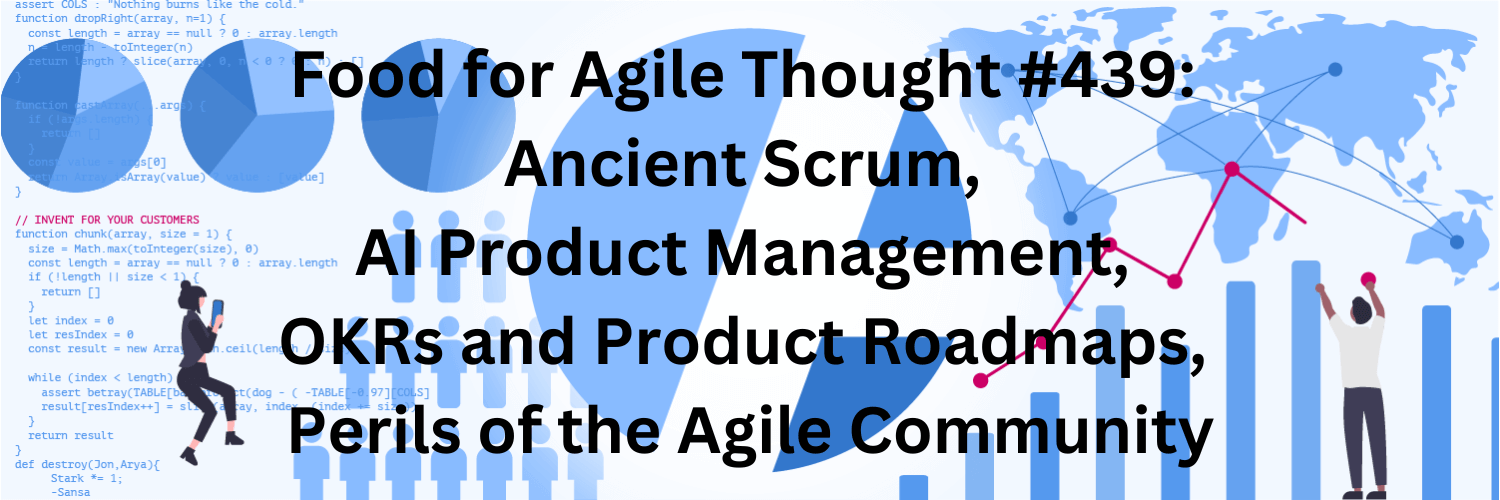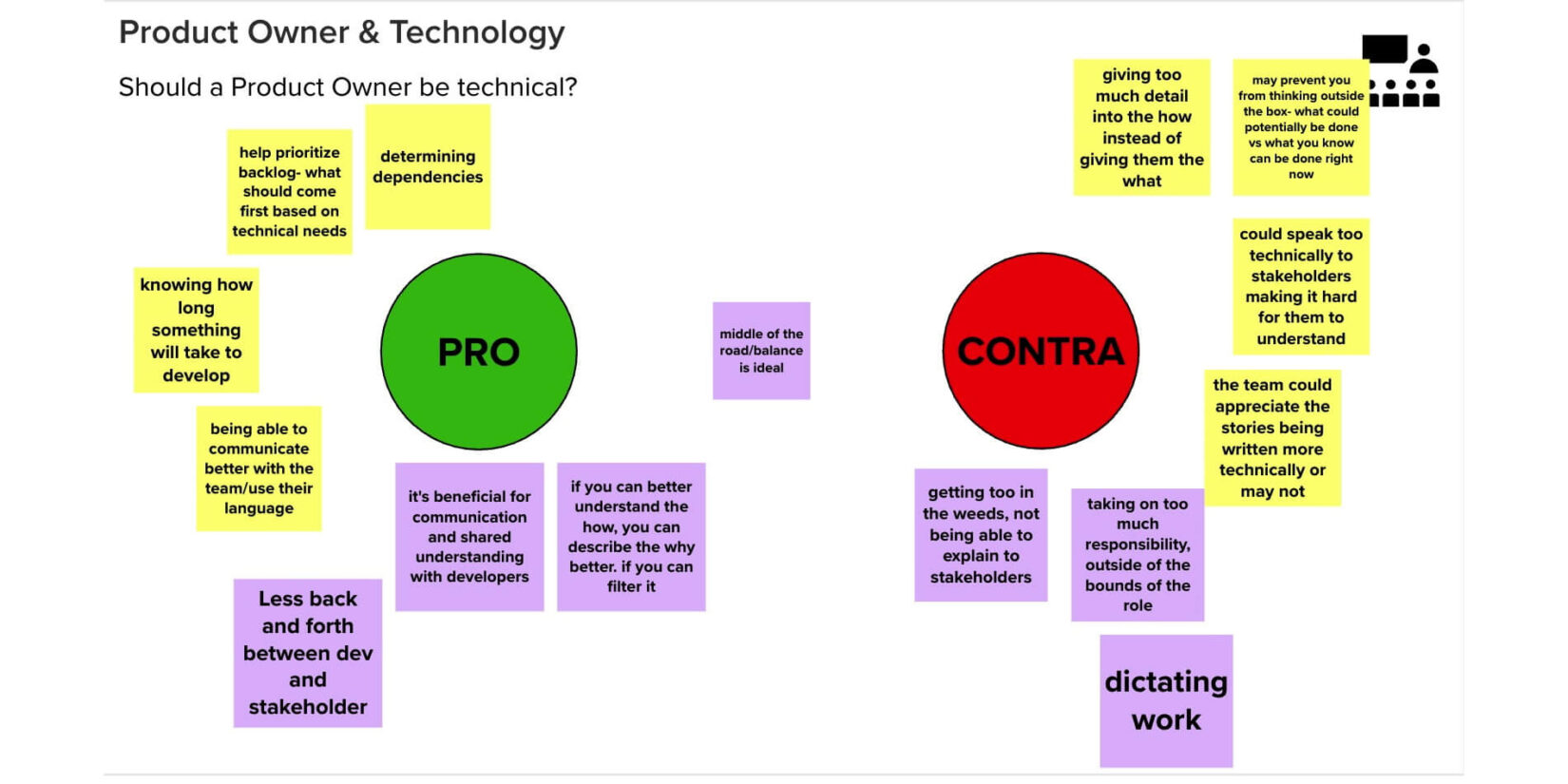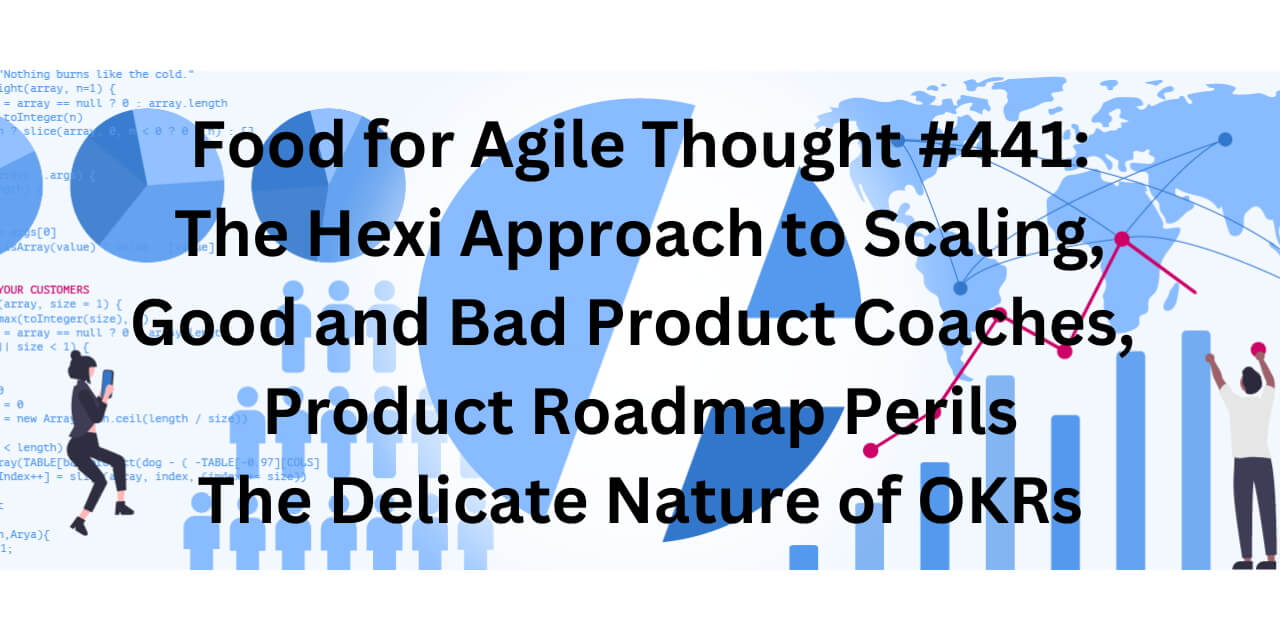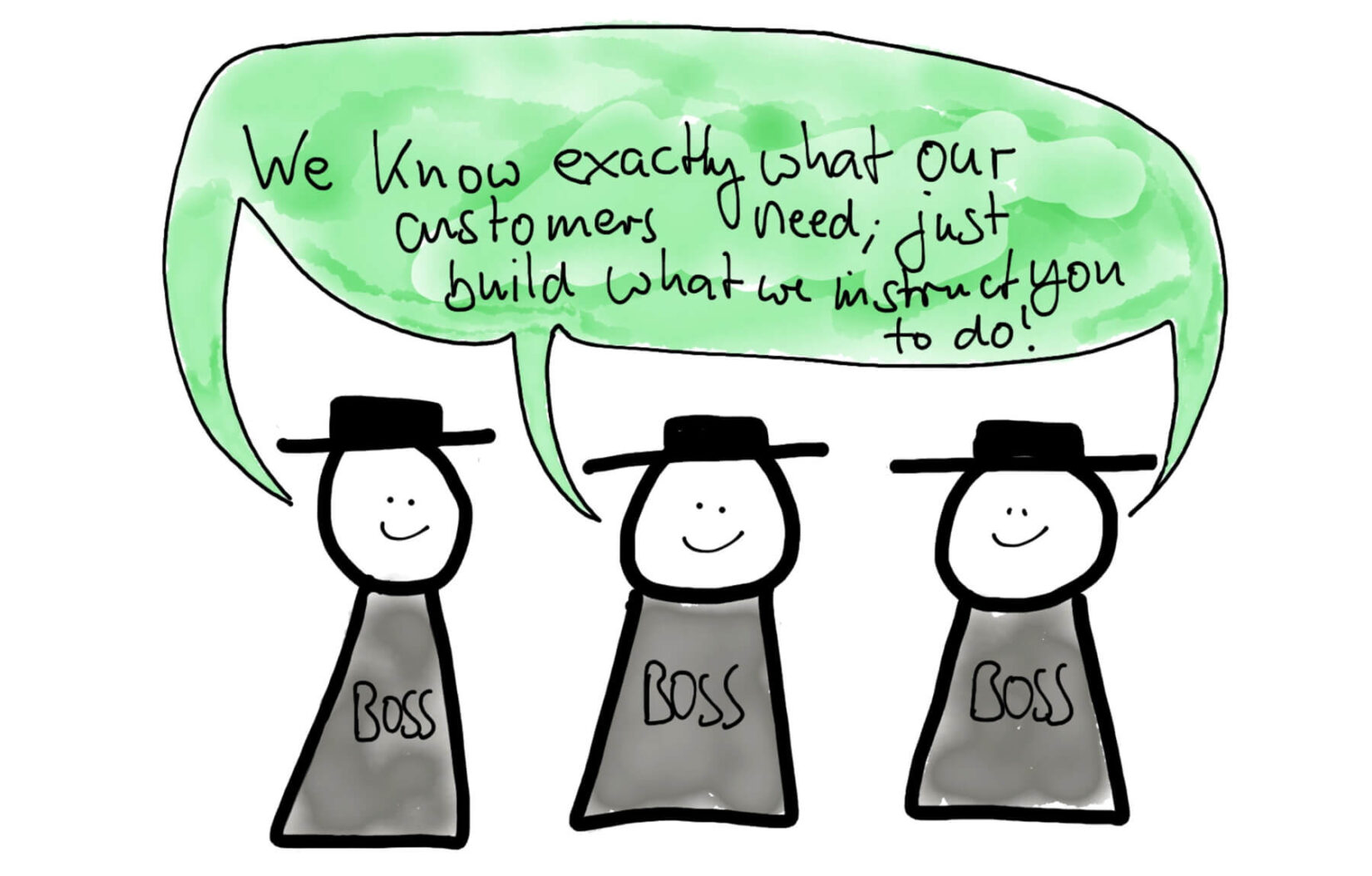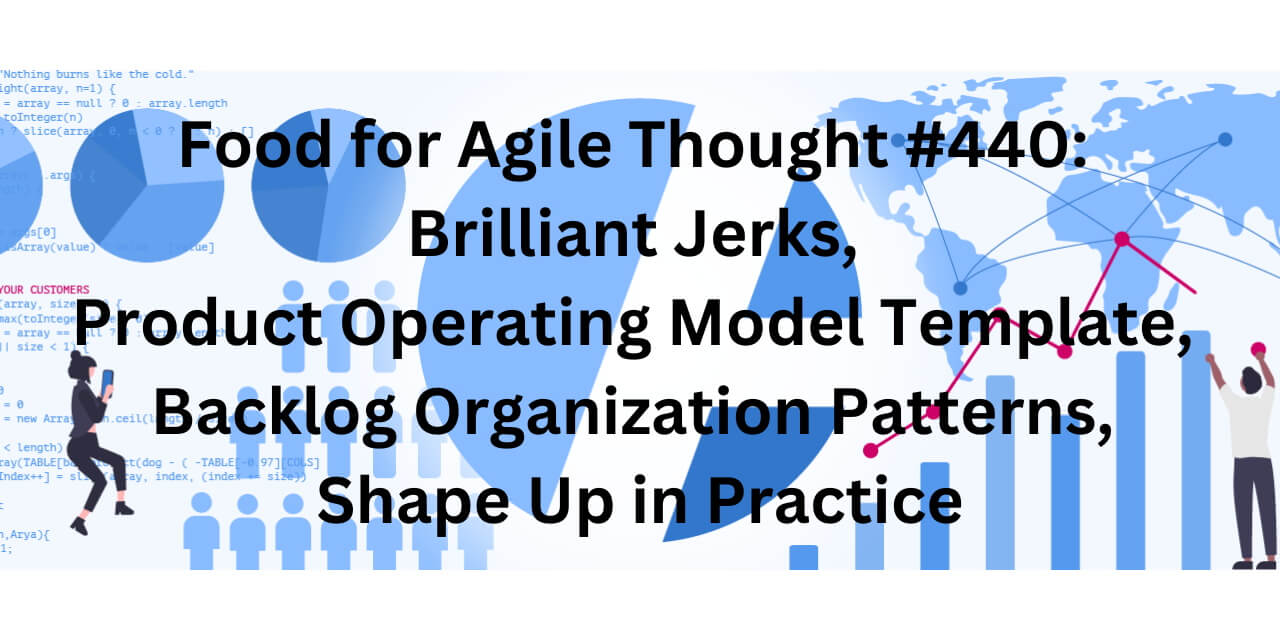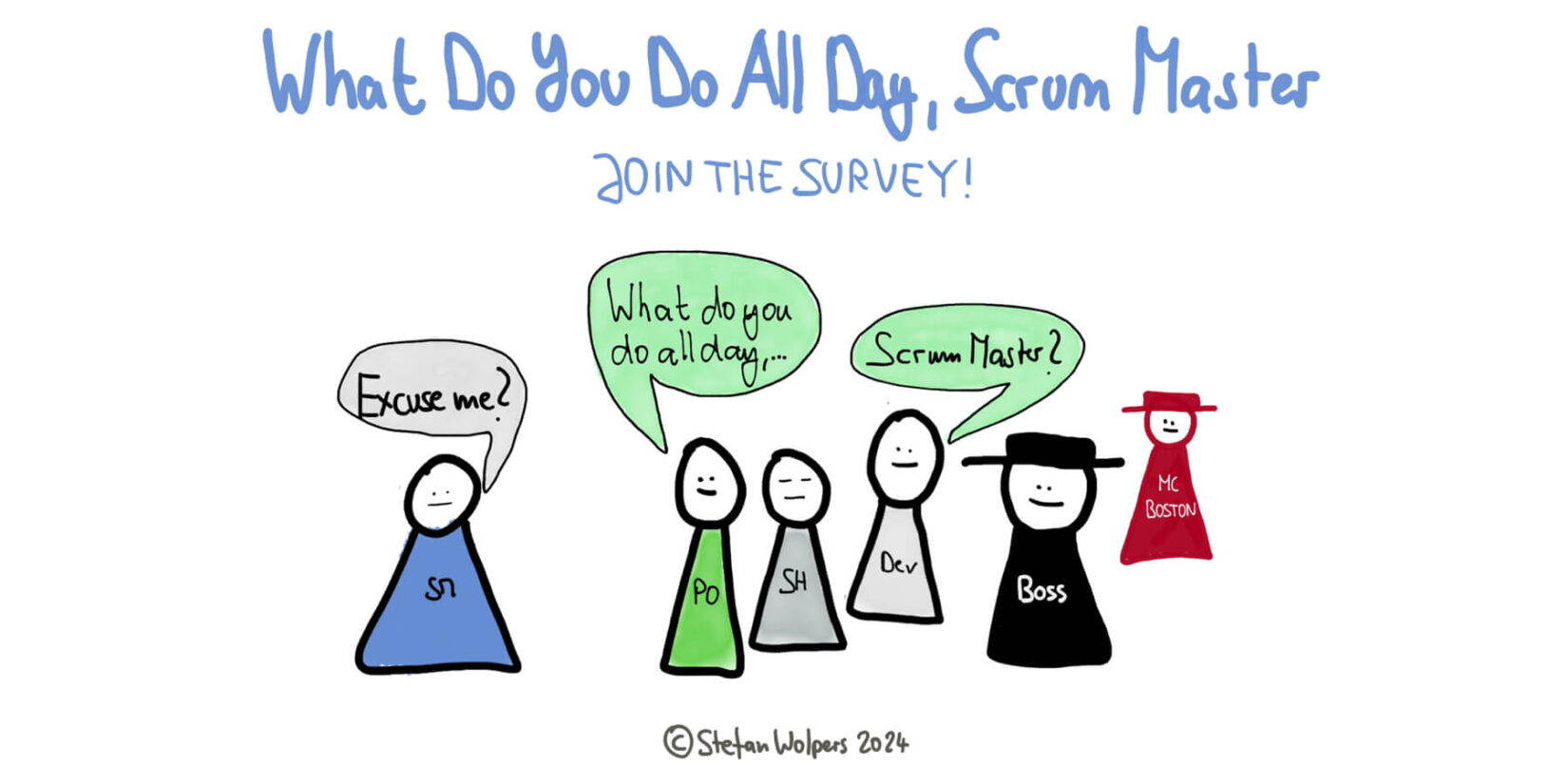TL; DR: Ancient Scrum — Food for Agile Thought #439
Welcome to the 439th edition of the Food for Agile Thought newsletter, shared with 42,436 peers. This week, Tobias Mayer traces Scrum back to ancient human processes, suggesting its natural integration in creative endeavors. Scott Seivwright critiques the narrow focus of Agile coaches on methodology, advocating for adaptive practices in response to economic challenges, and David Burkus highlights the crucial role of managers in fostering autonomy and leadership amid rising trends towards managerless models. Chris Matts uses Eric Berne’s transaction analysis to contrast effective adult-adult interactions against the limiting parent-child dynamics in risk-averse environments. Also, Rami James champions asking for help as an essential developer skill, promoting collaboration and continuous learning over individualism.
Then, Marty Cagan and Marily Nika address the challenges of AI Product Management, and Evgenia Suvorova shares insights from her tenure at Revolut on achieving product-market fit. Chad McAllister and John Rossman emphasize the importance of “Big Bets” in business transformation, with John drawing on his Amazon experience to advocate for clarity, speed, and risk management. Leah Tharin offers a critical view on the implementation of SAFe, noting its complexity and the constraints it imposes on team autonomy, often resulting in inefficiency and dissatisfaction.
Lastly, Richard Kasperowski focuses on the role of pair programming and continuous delivery in agile practices. Moreover, Roman Pichler discusses the integration of OKRs with product roadmaps, while Andy Cleff and Colleen Johnson explore flow metrics like WIP and cycle time to enhance organizational agility through actionable metrics. Additionally, the 2024 AI Index report presents a comprehensive analysis of new AI trends, public perceptions, geopolitical dynamics, and the impact of AI on science and medicine.
